Depakote 250 Tablet 15's
MRP ₹203.5
(Inclusive of all Taxes)
₹30.5 Cashback (15%)
Provide Delivery Location
Online payment accepted
 Prescription drug
Prescription drugWhats That
Composition :
Manufacturer/Marketer :
Consume Type :
Expires on or after :
Return Policy :
About Depakote 250 Tablet
Depakote 250 Tablet belongs to a group of medicines called anticonvulsants or anti-epileptics used to treat epilepsy/seizures/fits. Additionally, Depakote 250 Tablet is also used to treat manic episodes associated with bipolar disorder and to prevent migraine. Epilepsy is a sudden rush of electricity in the brain. In epilepsy the brain's electrical rhythms become imbalanced, resulting in recurrent seizures.
Depakote 250 Tablet contains 'Divalproex sodium', which decreases the brain's excessive and abnormal nerve activity. Thereby helps in controlling seizures. Depakote 250 Tablet increases the amount of a chemical substance called GABA, this helps block the nerve transmission across the brain and provides a calming effect. Thereby helps treat bipolar disorder.
Take Depakote 250 Tablet with or without food. You are advised to take Depakote 250 Tablet for as long as your doctor has prescribed it for you depending on your medical condition. In some cases, you may experience certain common side-effects such as abdominal pain, back pain, constipation, diarrhoea, dizziness, nausea, increased appetite, and vomiting. Most of these side-effects do not require medical attention and will resolve gradually over time. However, you are advised to talk to your doctor if you experience these side-effects persistently.
Please do not stop taking Depakote 250 Tablet without consulting your doctor to avoid worsening of seizures. Do not take Depakote 250 Tablet if you are pregnant as it could cause serious birth defects. If you are of child-bearing age, use effective contraception while taking Depakote 250 Tablet . Consult your doctor before taking Depakote 250 Tablet if you are breastfeeding. Avoid driving or operating machinery as Depakote 250 Tablet causes dizziness, and may affect thinking and motor skills. Avoid consuming alcohol along with Depakote 250 Tablet as it could lead to increased dizziness. Care should be taken while giving Depakote 250 Tablet to children below 2years as there is a higher risk of liver intoxication during the first 6months of treatment. Keep your doctor informed about your health condition and medicines to rule out any side-effects.
Uses of Depakote 250 Tablet
Directions for Use
Key Benefits
Depakote 250 Tablet belongs to a group of medicines called anticonvulsants or anti-epileptics. Depakote 250 Tablet is used to treat epilepsy/seizures/fits. Additionally, Depakote 250 Tablet is also used to treat mood disorder and to prevent migraine headaches. Depakote 250 Tablet decreases the excessive and abnormal nerve activity in the brain. Thereby helps in controlling seizures. Depakote 250 Tablet treats mood disorder by increasing the amount of a chemical substance called GABA, this helps block the nerve transmission across the brain and provides a calming effect. Depakote 250 Tablet prevents migraine headache by limiting the transmission of nerve pain. Depakote 250 Tablet is used alone or in combination to treat simple seizures, complex partial seizures and complex absence seizures. Depakote 250 Tablet is used in combination to treat multiple seizures such as absence seizures.
Storage
Drug Warnings
Do not take Depakote 250 Tablet if you are allergic to any of its contents, have/ had liver problems or urea cycle disorders. Inform your doctor before taking Depakote 250 Tablet if you have pancreatitis, blood problems or multi-organ hypersensitivity. Consult your doctor immediately if you experience suicidal tendency while taking Depakote 250 Tablet . Depakote 250 Tablet may cause thrombocytopenia (low blood platelets), hyperammonemia (high levels of ammonia in the blood), hypothermia (low body temperature) and liver problems. Please do not stop taking Depakote 250 Tablet without consulting your doctor to avoid worsening of seizures. Do not take Depakote 250 Tablet if you are pregnant as it could cause serious birth defects. If you are of child-bearing age, use effective contraception while taking Depakote 250 Tablet . Consult your doctor before taking Depakote 250 Tablet if you are breastfeeding. Avoid driving or operating machinery as Depakote 250 Tablet causes dizziness and may affect thinking and motor skills. Avoid consuming alcohol along with Depakote 250 Tablet as it could lead to increased dizziness. Care should be taken while giving Depakote 250 Tablet to children below 2years as there is a higher risk of liver intoxication during the first 6months of treatment.
Drug-Drug Interactions
Drug-Drug Interactions
Login/Sign Up
Coadministration of Glycerol phenylbutyrate and Depakote 250 Tablet can increase ammonia levels in the blood.
How to manage the interaction:
Taking Glycerol phenylbutyrate and Depakote 250 Tablet together is generally avoided as it can lead to an interaction, it can be taken when your doctor advises. If you experience any symptoms like sudden dizziness, headaches, vomiting, and visual disturbances, contact your doctor immediately. Do not discontinue any medications without first consulting your doctor.
Coadministration of Depakote 250 Tablet and Vorinostat can increase the risk of bleeding.
How to manage the interaction:
Although there is a possible interaction between Depakote 250 Tablet and Vorinostat, you can take these medicines together if prescribed by your doctor. If you experience any symptoms like unusual bleeding or bruising, vomiting, blood in your urine or stools, headache, dizziness, or weakness, consult the doctor immediately. Do not discontinue any medications without consulting your doctor.
Coadministration of Depakote 250 Tablet and Lamotrigine can increase the risk and severity of side effects.
How to manage the interaction:
Although there is a possible interaction between Depakote 250 Tablet and Lamotrigine, you can take these medicines together if prescribed by your doctor. However, contact your doctor if you experience restlessness, rash, or muscle weakness. Do not stop using any medications without a doctor's advice.
Co-administration of Depakote 250 Tablet and Ketamine can increase the risk of side effects.
How to manage the interaction:
Co-administration of Depakote 250 Tablet and Ketamine can lead to an interaction, it can be taken if advised by your doctor. If you have any symptoms such as dizziness, drowsiness, shortness of breath, or impairment in thinking and motor coordination, make sure to contact your doctor right away. Do not stop using any medications without a doctor's advice.
Coadministration of Ketoconazole and Depakote 250 Tablet may increase the risk of liver damage.
How to manage the interaction:
Although taking Ketoconazole and Depakote 250 Tablet together can result in an interaction, it can be taken if a doctor has prescribed it. However, if you have any of the following symptoms: fever, chills, joint pain, fatigue, nausea, vomiting, stomach pain, dark urine, and yellowing of the skin or eyes, consult a doctor immediately. Do not stop using any medications without a doctor's advice.
Coadministration of Esketamine and Depakote 250 Tablet can increase the side effects of esketamine.
How to manage the interaction:
Although taking Depakote 250 Tablet and Esketamine together can cause an interaction, it can be taken if your doctor has suggested it. However, if you experience any symptoms like drowsiness and impaired motor coordination, consult the doctor immediately. Do not stop using any medications without talking to your doctor.
Co-administration of Depakote 250 Tablet and Bexarotene can increase the risk of pancreatitis (inflammation of the pancreas).
How to manage the interaction:
Co-administration of Depakote 250 Tablet and Bexarotene can lead to an interaction, but it can be taken when advised by your doctor. However, if you experience any symptoms like nausea, vomiting, or stomach cramps, consult a doctor immediately. Do not stop using any medications without a doctor's advice.
Co-administration of Depakote 250 Tablet and Lomitapide can increase the risk of liver problems.
How to manage the interaction:
Co-administration of Depakote 250 Tablet and lomitapide can lead to an interaction, but it can be taken if advised by your doctor. However, if you experience any symptoms like fever, joint pain, unusual bleeding, weakness, nausea, vomiting, stomach pain, dark urine, pale stools, or yellowing of the skin or eyes, consult the doctor immediately. Do not stop using any medications without the doctor's advice.
Co-administration of Depakote 250 Tablet and mipomersen can increase the risk of liver problems.
How to manage the interaction:
Co-administration of Depakote 250 Tablet and mipomersen can lead to an interaction, but it can be taken if your doctor advises. However, if you experience any symptoms like fever, chills, joint pain, unusual bleeding, weakness, nausea, vomiting, stomach pain, dark urine, pale stools, and yellowing of the skin or eyes, consult the doctor immediately. Avoid alcohol consumption, and Do not stop using any medications without a doctor's advice.
Co-administration of Depakote 250 Tablet and teriflunomide can increase the risk of liver problems.
How to manage the interaction:
Co-administration of Depakote 250 Tablet and teriflunomide can lead to an interaction, but it can be taken if your doctor advises. However, if you experience any symptoms like fever, chills, joint pain, unusual bleeding, weakness, nausea, vomiting, stomach pain, dark urine, pale stools, and yellowing of the skin or eyes, consult a doctor immediately. Do not stop using any medications without a doctor's advice.
Drug-Food Interactions
Drug-Food Interactions
Login/Sign Up
Diet & Lifestyle Advise
- A ketogenic diet (low in carbohydrates and high in fats) is recommended for children with epilepsy. This diet helps in utilising fat instead of glucose for the generation of energy.
- Atkins diet (high fay and controlled carbohydrates) is recommended for adolescents and adults.
- Exercising regularly helps in maintaining weight and improving overall health.
- Rest well, get plenty of sleep.
- Avoid smoking and alcohol consumption.
- Meditation and yoga can help lower the stress, decrease pain sensitivity and improves coping skills.
- Have a seizure response plan, help those around you know what to do.
- Prepare your living area, small changes may reduce the risk of physical injury during a seizure.
- Understand what triggers seizures and try reducing or avoiding them.
- Please pay attention to overall health as it can help in reducing seizure activity.
- Install an alarm or emergency device to get assistance during a seizure attack.
Side Effects of Depakote 250 Tablet
- Abdominal pain
- Back pain
- Constipation
- Diarrhoea
- Dizziness
- Nausea
- Increased appetite
- Vomiting
- Vision problems
- Weight changes
- Problems with walking or coordination
Habit Forming
Therapeutic Class
All Substitutes & Brand Comparisons
RX
Alporate-D 250Mg Er Tablet 15'S
Alteus Biogenics Pvt Ltd
₹104.5
(₹6.13 per unit)
49% CHEAPERRX
Divalrx XR-250 Tablet 10's
₹69
(₹6.21 per unit)
49% CHEAPERRX
Out of StockLax-ER 250 Tablet 10's
Laxian Incorporation
₹69
(₹6.21 per unit)
49% CHEAPER
Author Details
We provide you with authentic, trustworthy and relevant information
Drug-Diseases Interactions
Drug-Diseases Interactions
Login/Sign Up
FAQs
Depakote 250 Tablet decreases the excessive and abnormal nerve activity in the brain. Thereby helps in controlling seizures.
Depakote 250 Tablet helps to treat manic episodes associated with bipolar disorder by increasing the amount of a chemical substance called GABA, this helps in blocking the nerve transmission across the brain and provides a calming effect.
Depakote 250 Tablet limits the transmission of nerve pain, thereby prevents migraine headache. Migraine is a neurological condition which is characterized by intense headaches.
Do not discontinue Depakote 250 Tablet without consulting your doctor. To treat your condition effectually continue taking Depakote 250 Tablet for as long as prescribed. Do not be reluctant to speak with your doctor if you feel any difficulty while taking Depakote 250 Tablet , your doctor will reduce the dose gradually to avoid worsening of seizures.
Depakote 250 Tablet may cause weight gain due to an increase in appetite. Maintain a healthy weight by following a healthy diet and exercising regularly.
Use an effective method of contraception during the treatment with Depakote 250 Tablet . Avoid getting pregnant while taking Depakote 250 Tablet as it could lead to serious birth defects. Do not stop taking Depakote 250 Tablet and consult your doctor immediately if you become pregnant.
Depakote 250 Tablet may cause thrombocytopenia (low levels of platelets). This might increase the risk of bleeding and bruising. Be cautious while using sharp objects. Consult your doctor if you notice unexplained bleeding or bruising. Regular monitoring of blood count is advised while taking Depakote 250 Tablet .
Topiramate (anticonvulsant) should not be taken along with Depakote 250 Tablet as it may cause hyperammonemia (excess ammonia in the blood), hypothermia (low body temperature) and liver problems.
Drug-Drug Interactions Checker List
- ASPIRIN
- PREGABALIN
- TOPIRAMATE
- PHENOBARBITAL
- PRIMIDONE
- PHENYTOIN
- CARBAMAZEPINE
- LAMOTRIGINE
- FELBAMATE
- ETHOSUXIMIDE
- ZIDOVUDINE
- DULOXETINE
- ESCITALOPRAM
- AMITRIPTYLINE
- NORTRIPTYLINE
- ARIPIPRAZOLE
- LURASIDONE
- QUETIAPINE
- ALPRAZOLAM
- RIFAMPICIN
- WARFARIN
- IMIPENEM
- MEROPENEM
- DIAZEPAM
Special Advise
- Regular monitoring of blood count and coagulation tests are advised while taking Depakote 250 Tablet as it may cause thrombocytopenia (low platelet levels).
- Depakote 250 Tablet may cause liver toxicity, usually during the first 6months of treatment. Children below two years are at a higher risk. Regular monitoring of liver function tests before treatment and at frequent intervals is advised.
- Depakote 250 Tablet might alter thyroid function tests and urine ketone tests. Inform the person doing the tests that you are taking Depakote 250 Tablet .
Disease/Condition Glossary
Epilepsy: Epilepsy is a sudden rush of electricity in the brain. It is a disorder of the nervous system which occurs due to disturbed nerve cell activity in the brain. In epilepsy the brain's electrical rhythms become imbalanced, resulting in recurrent seizures. In patients with seizures, the typical brain electrical pattern is disrupted by sudden bursts of electrical impulse that affect an individual's consciousness, movements or sensations. Seizures are of two types: generalised and partial seizures. Generalised seizures affect the entire brain, whereas partial seizures affect only a part of the brain. Seizures can cause uncontrollable muscle twitches and spasms. Stronger seizures may cause people to become confused or unconscious. Possible causes include high fever, trauma, genetic disorder, brain injury or stroke.
Mood disorder: It is a mental health disorder which mainly affects a person's emotional state. A mood disorder is associated with episodes of mood swings ranging from manic highs to depressive lows.
Migraine: Migraine is a neurological condition which is characterized by intense headaches. Symptoms include nausea, vomiting, and sensitivity to light and sound.

Have a query?
Alcohol
Safe if prescribed
Avoid consumption of alcohol while taking Depakote 250 Tablet as it may cause increased dizziness.
Pregnancy
Consult your doctor
Depakote 250 Tablet belongs to pregnancy category D. Avoid taking Depakote 250 Tablet if you are pregnant as it could lead to serious birth defects. Consult your doctor for further advice.
Breast Feeding
Consult your doctor
Depakote 250 Tablet may pass into breastmilk. Consult your doctor before taking Depakote 250 Tablet if you are breastfeeding.
Driving
Safe if prescribed
Depakote 250 Tablet causes dizziness and may affect thinking and motor skills. Do not drive or operate machinery.
Liver
Consult your doctor
Depakote 250 Tablet should not be used if you have liver problems or your family has a history of liver problems. Please consult your doctor if you have liver problems or any concerns regarding this.
Kidney
Consult your doctor
Dose adjustment may be needed in patients with kidney impairment. Please consult your doctor if you have kidney impairment or any concerns regarding this.
Children
Safe if prescribed
Depakote 250 Tablet can be given to children if prescribed by the doctor. The dose will be adjusted by the doctor depending upon the child's body weight. Care should be taken in children below 2years as they are at a higher risk of liver toxicity.

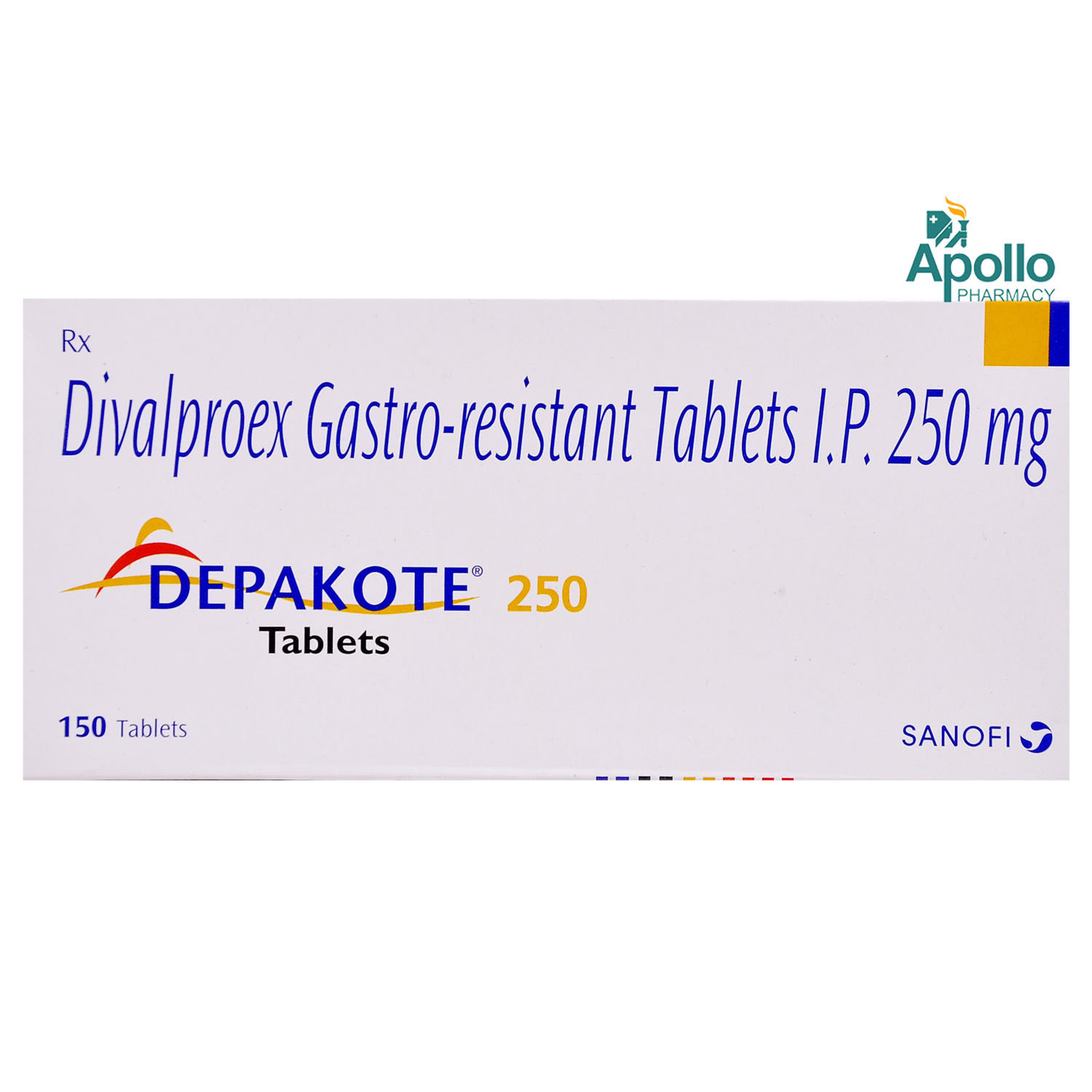
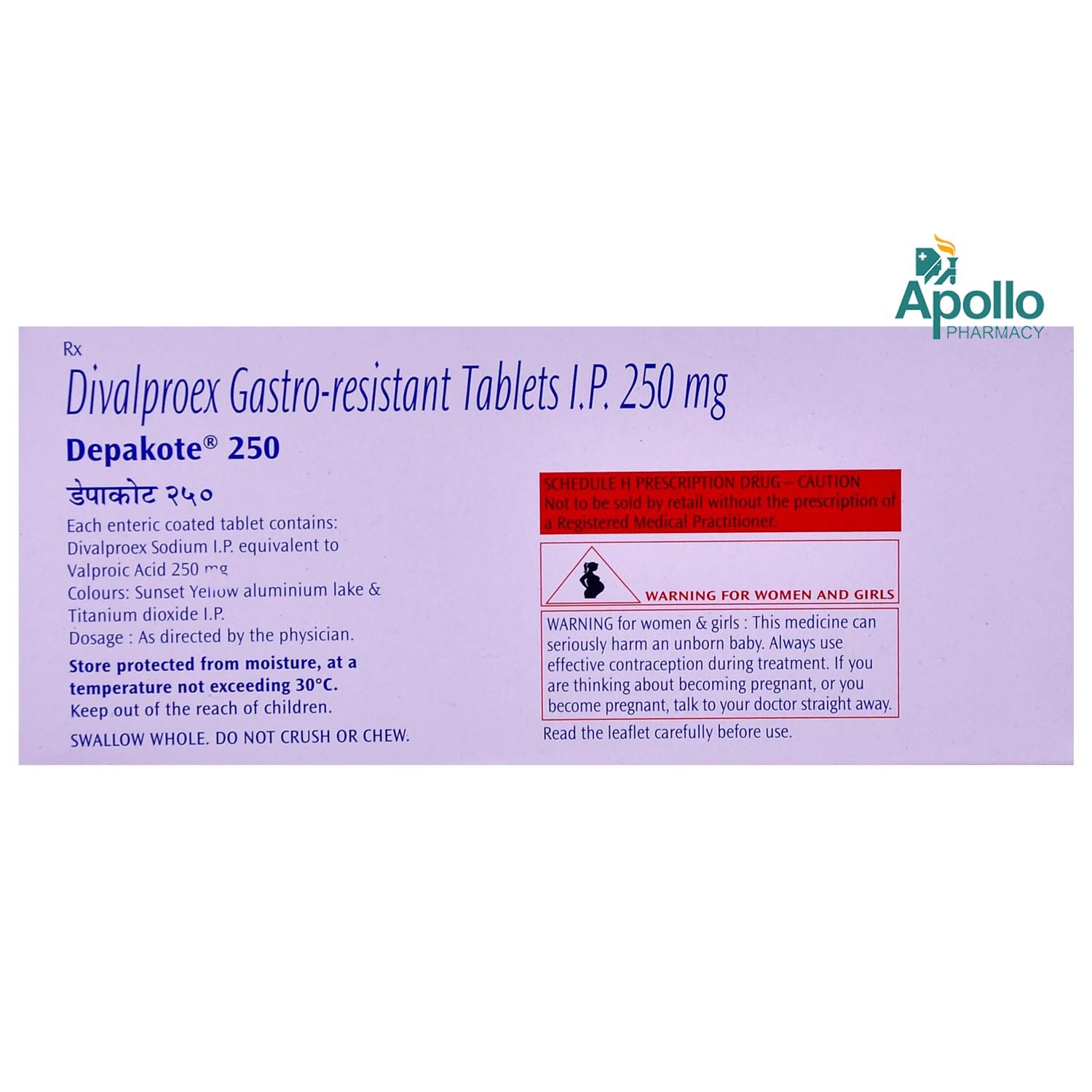
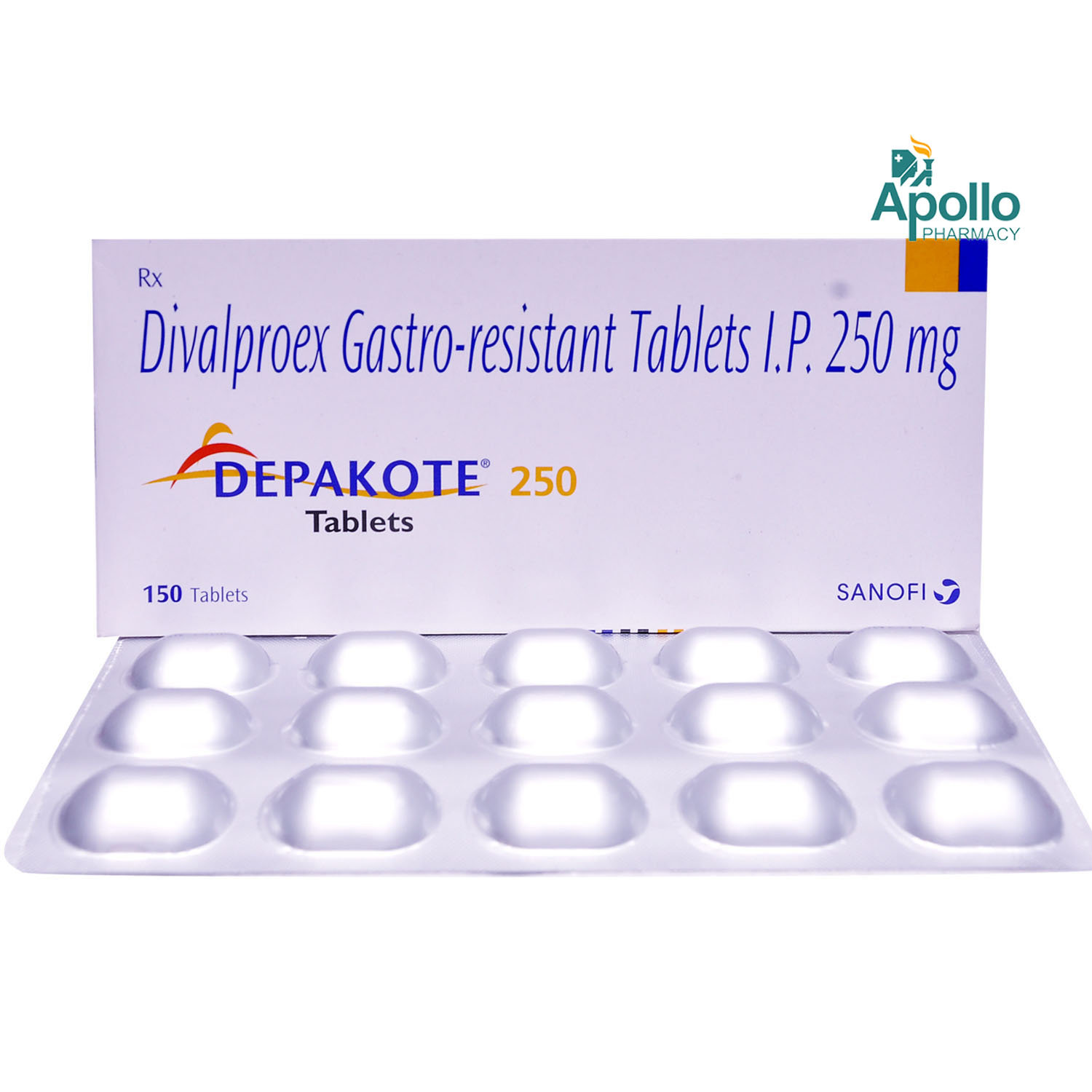
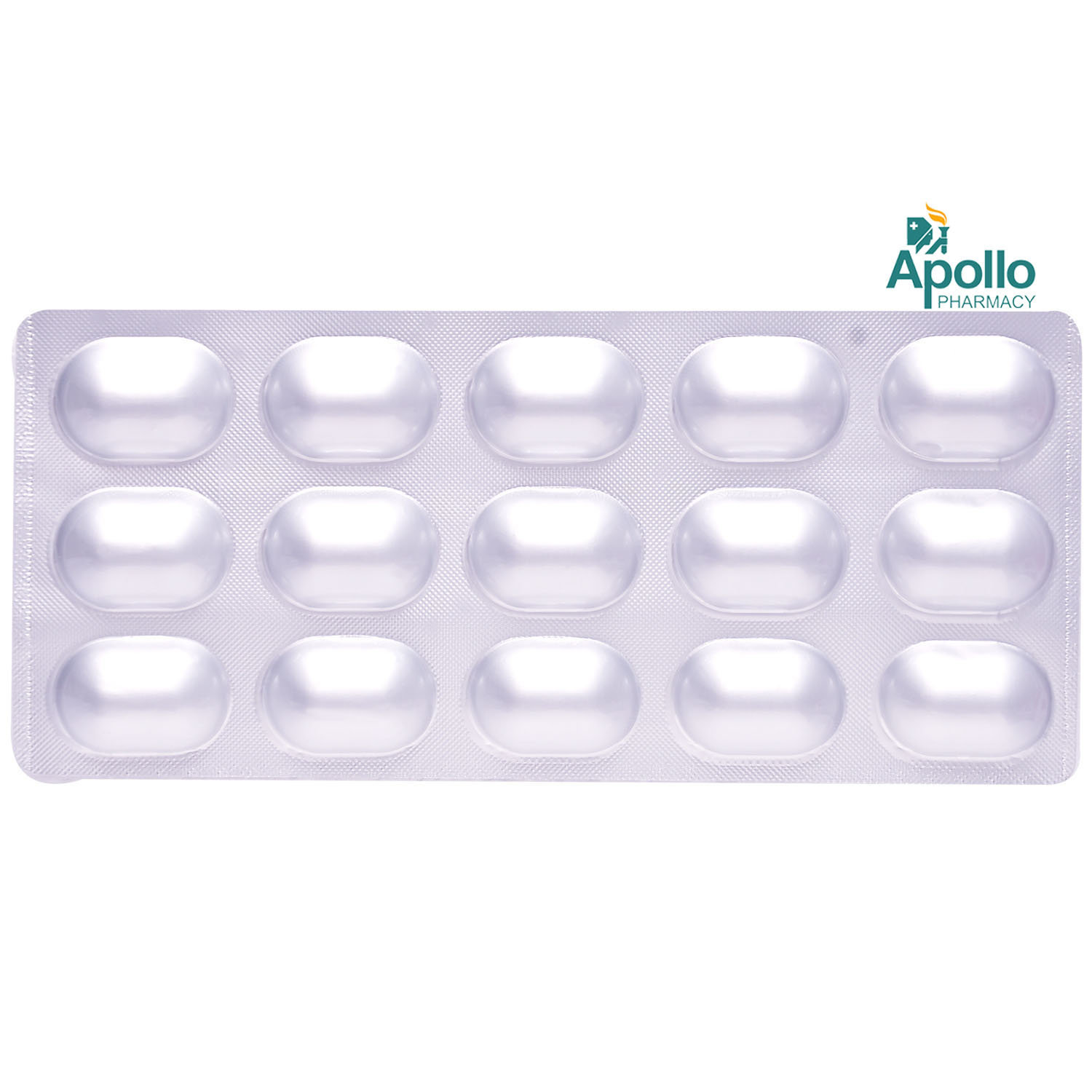
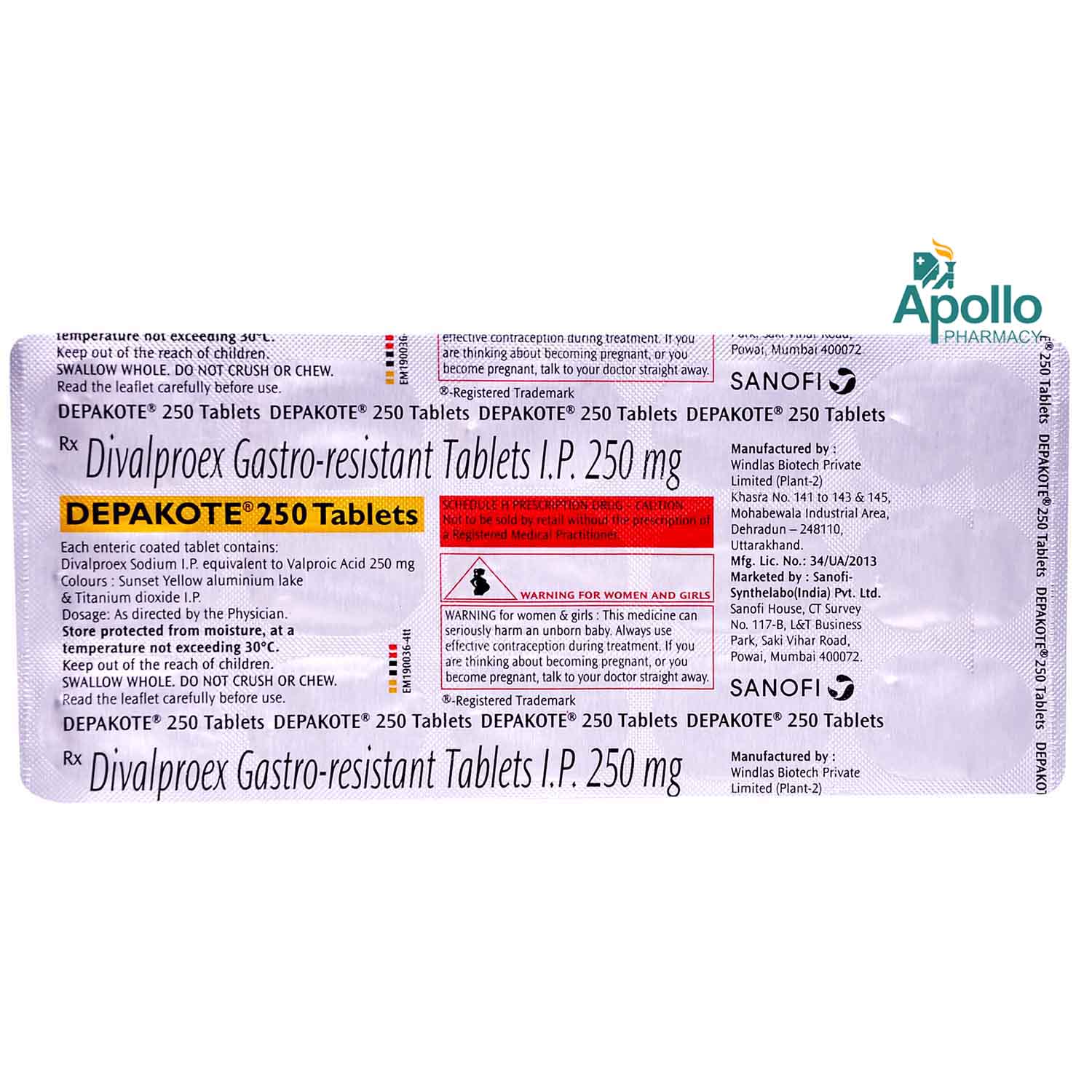







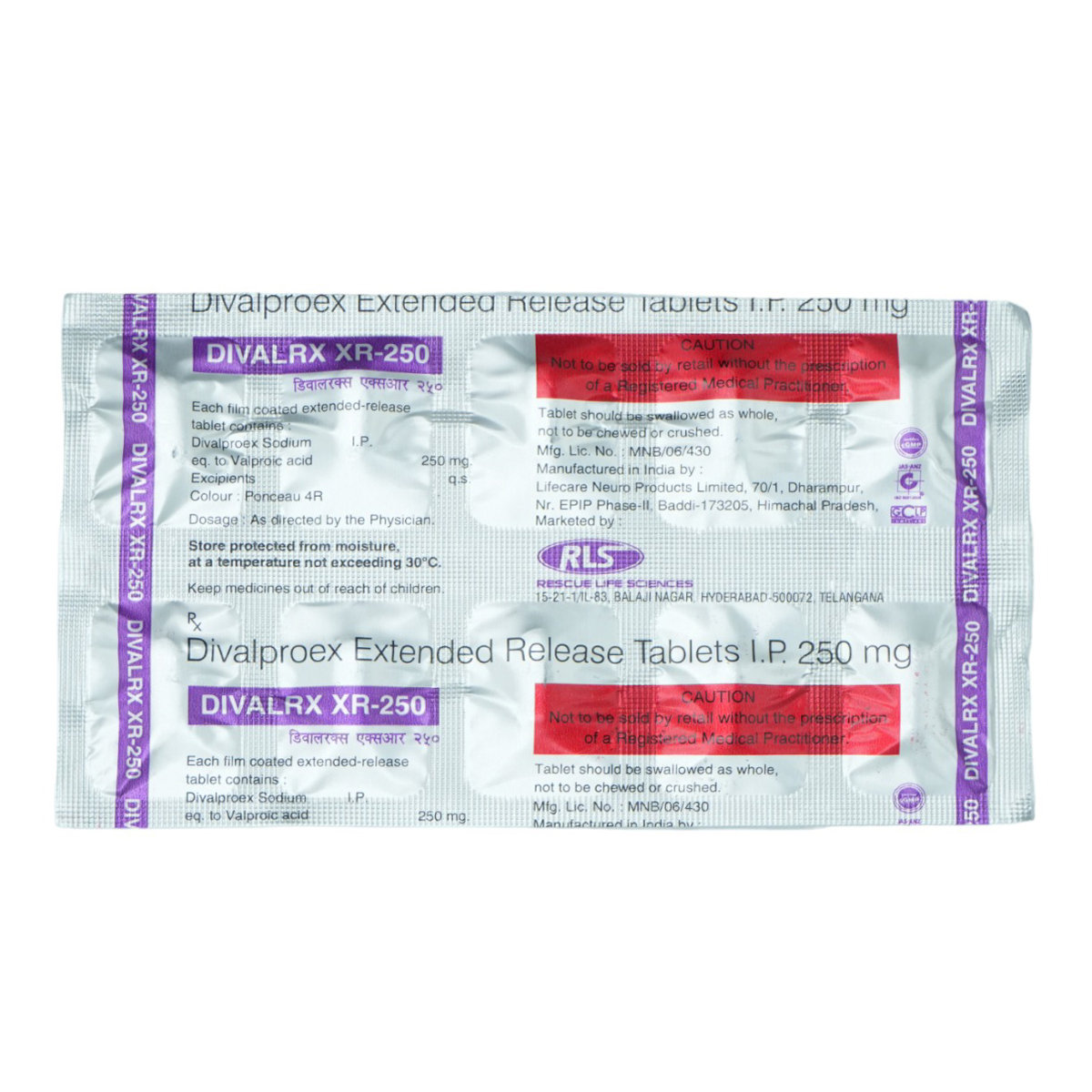



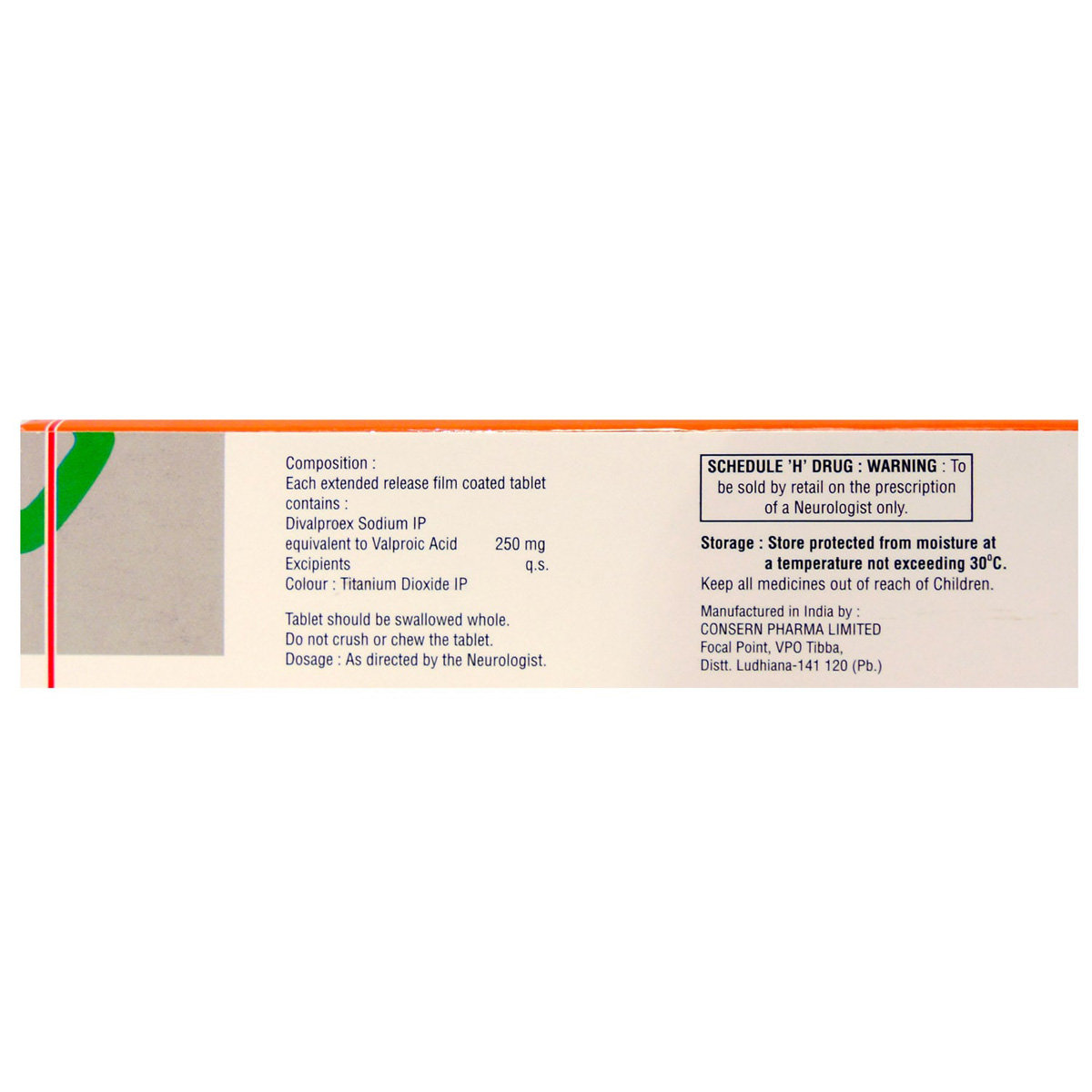
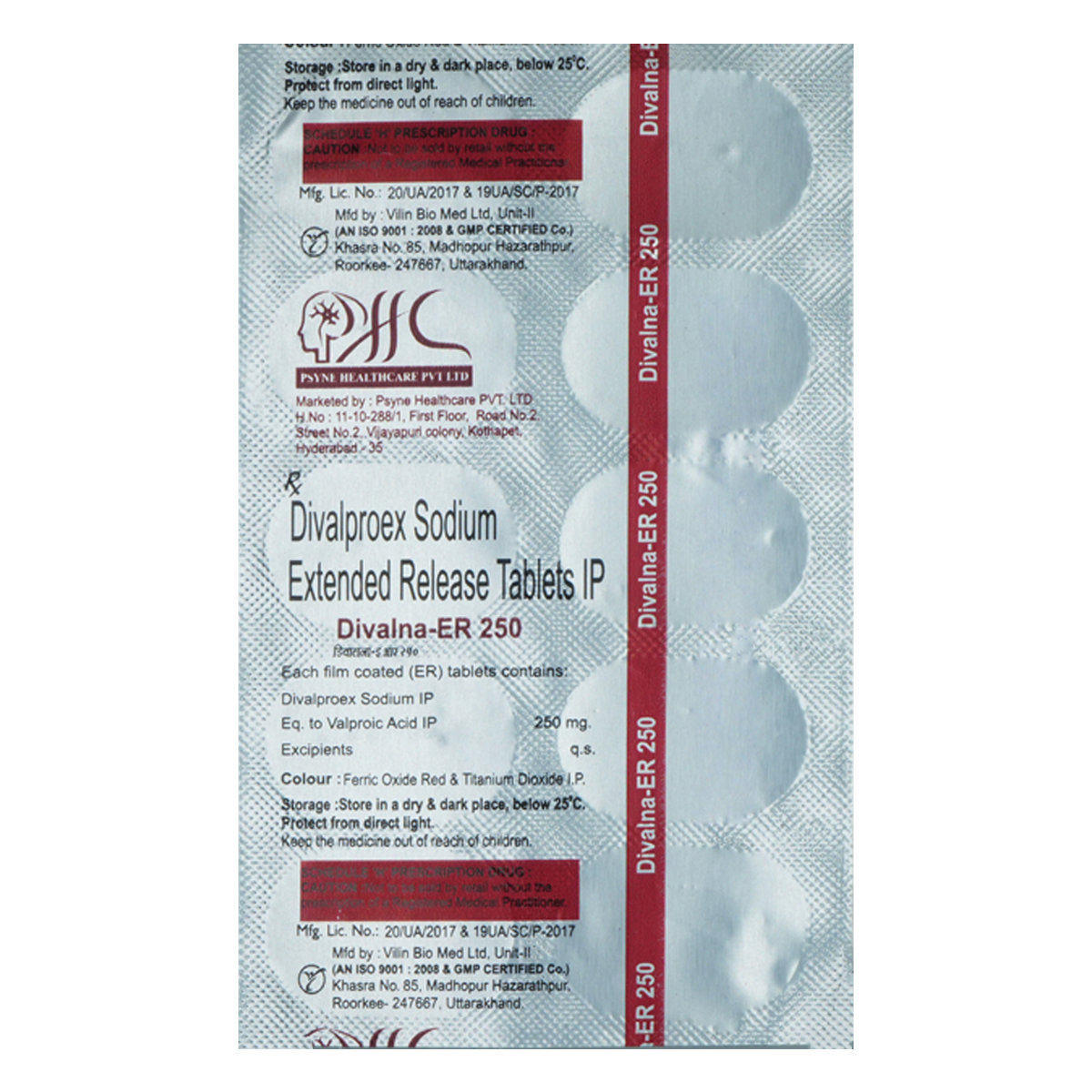
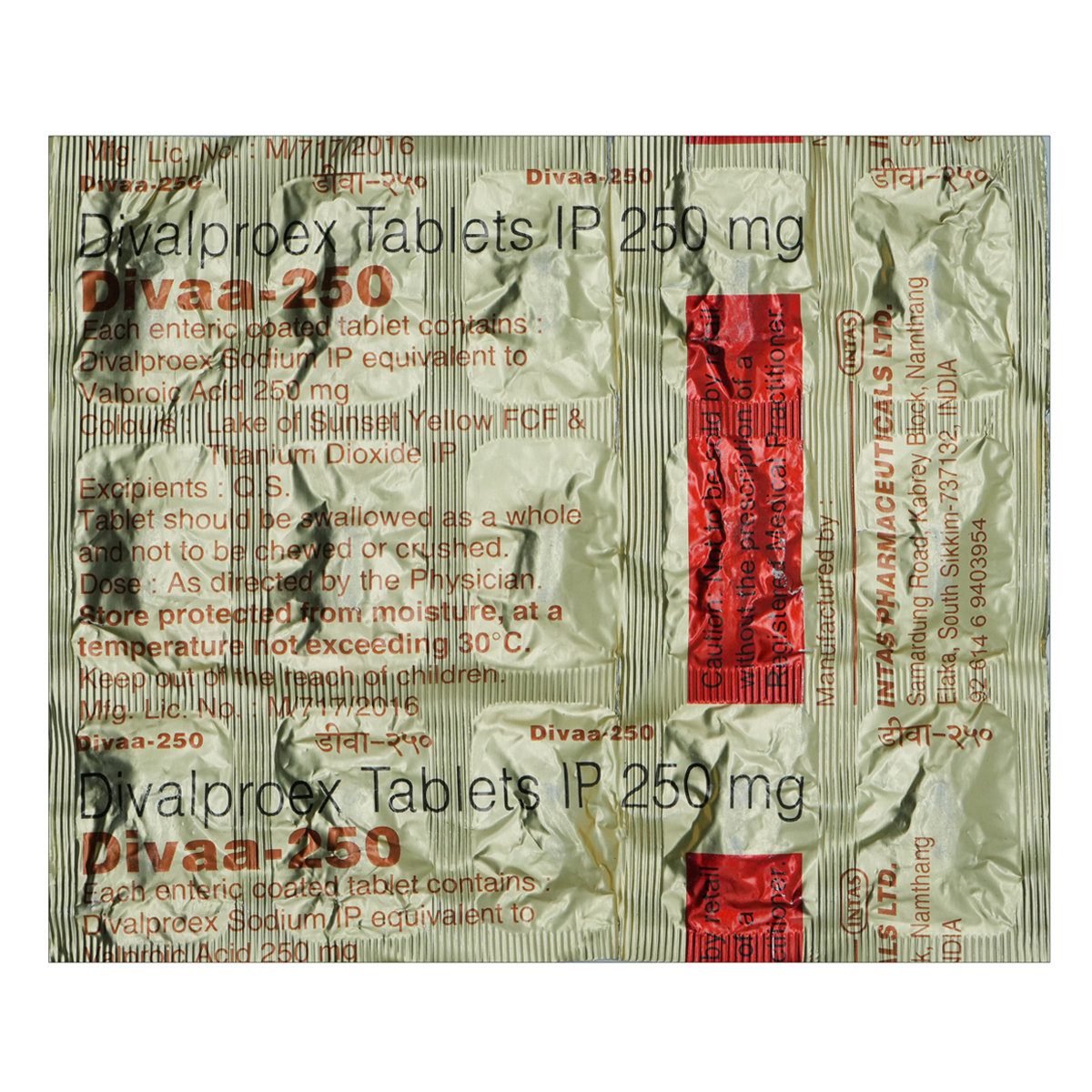
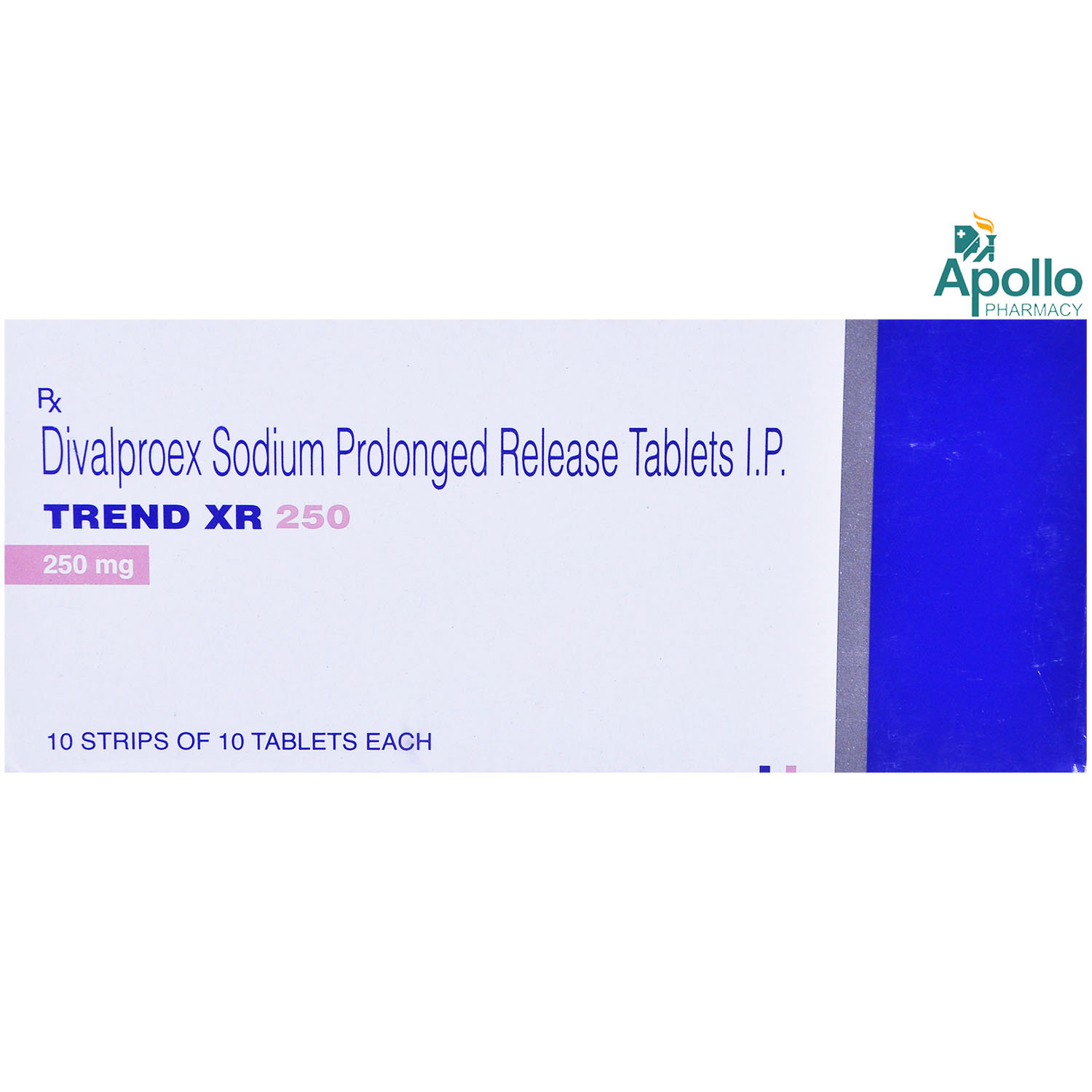
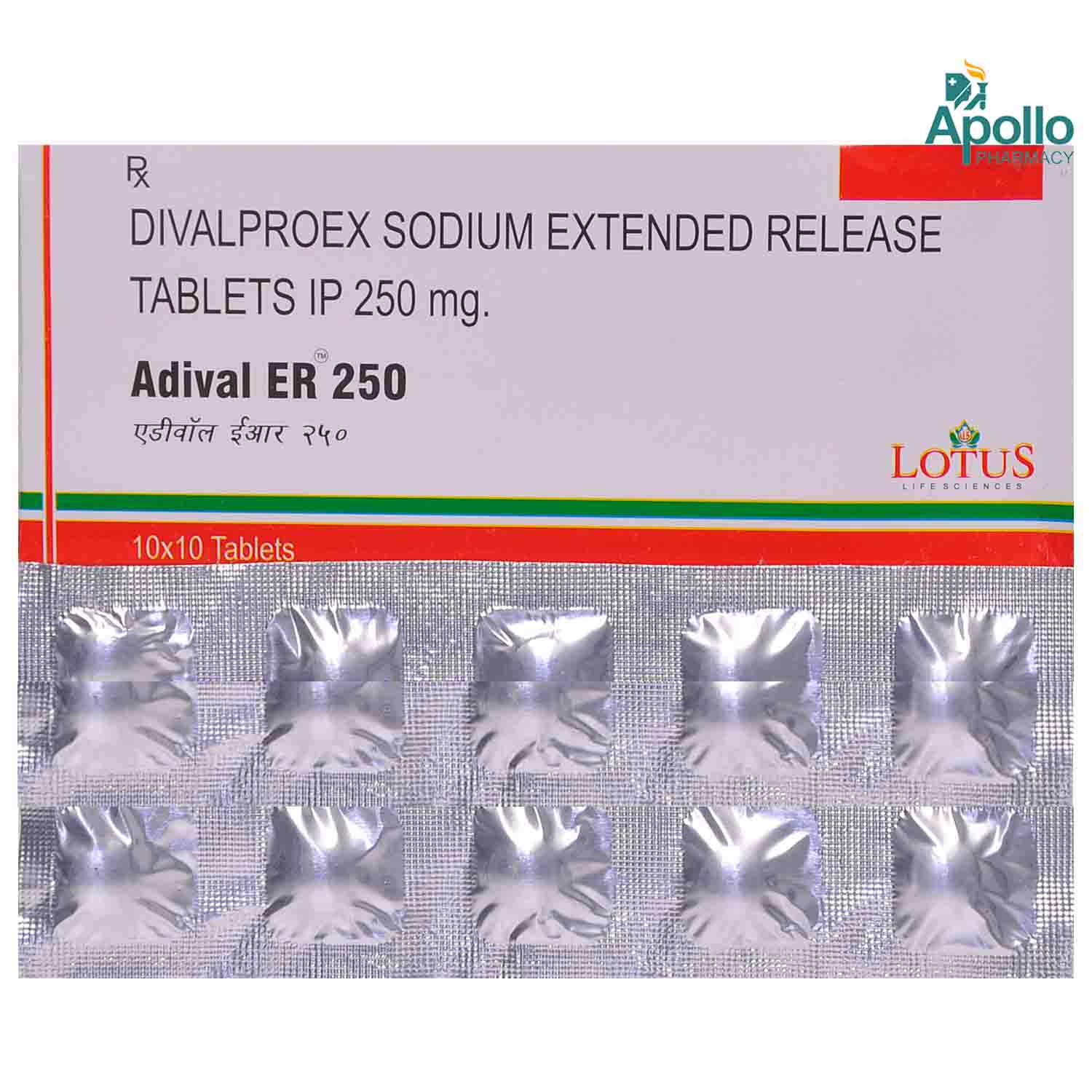
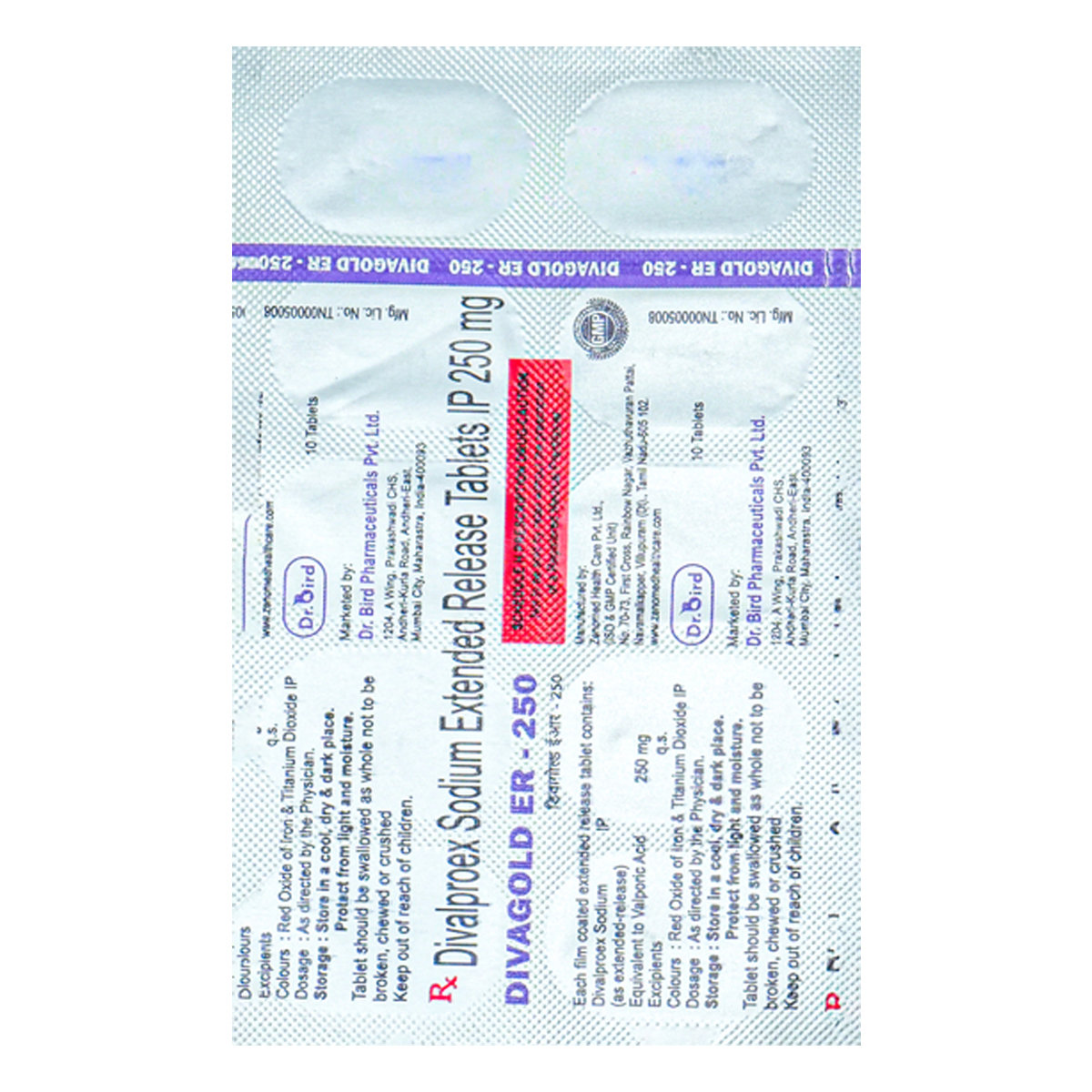
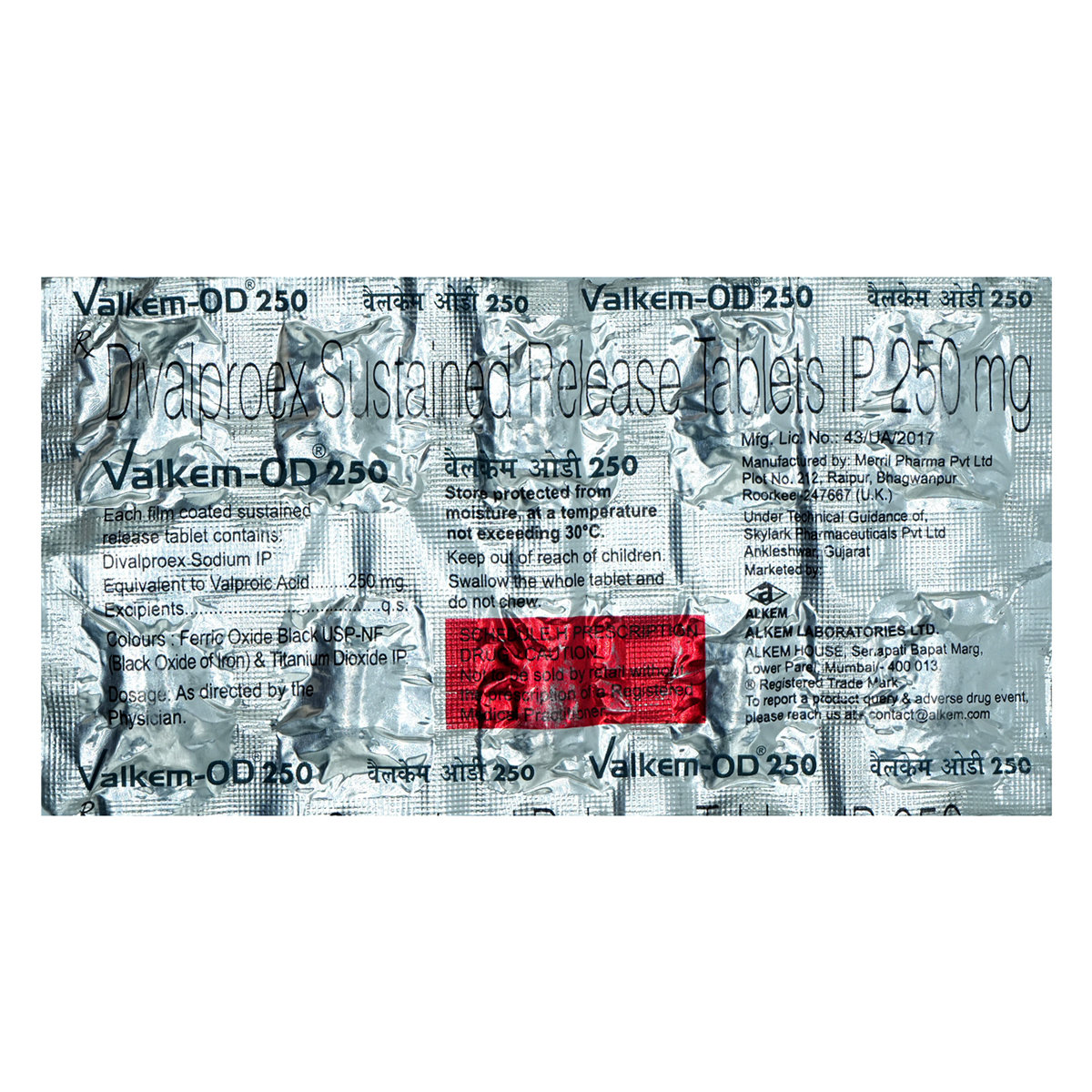
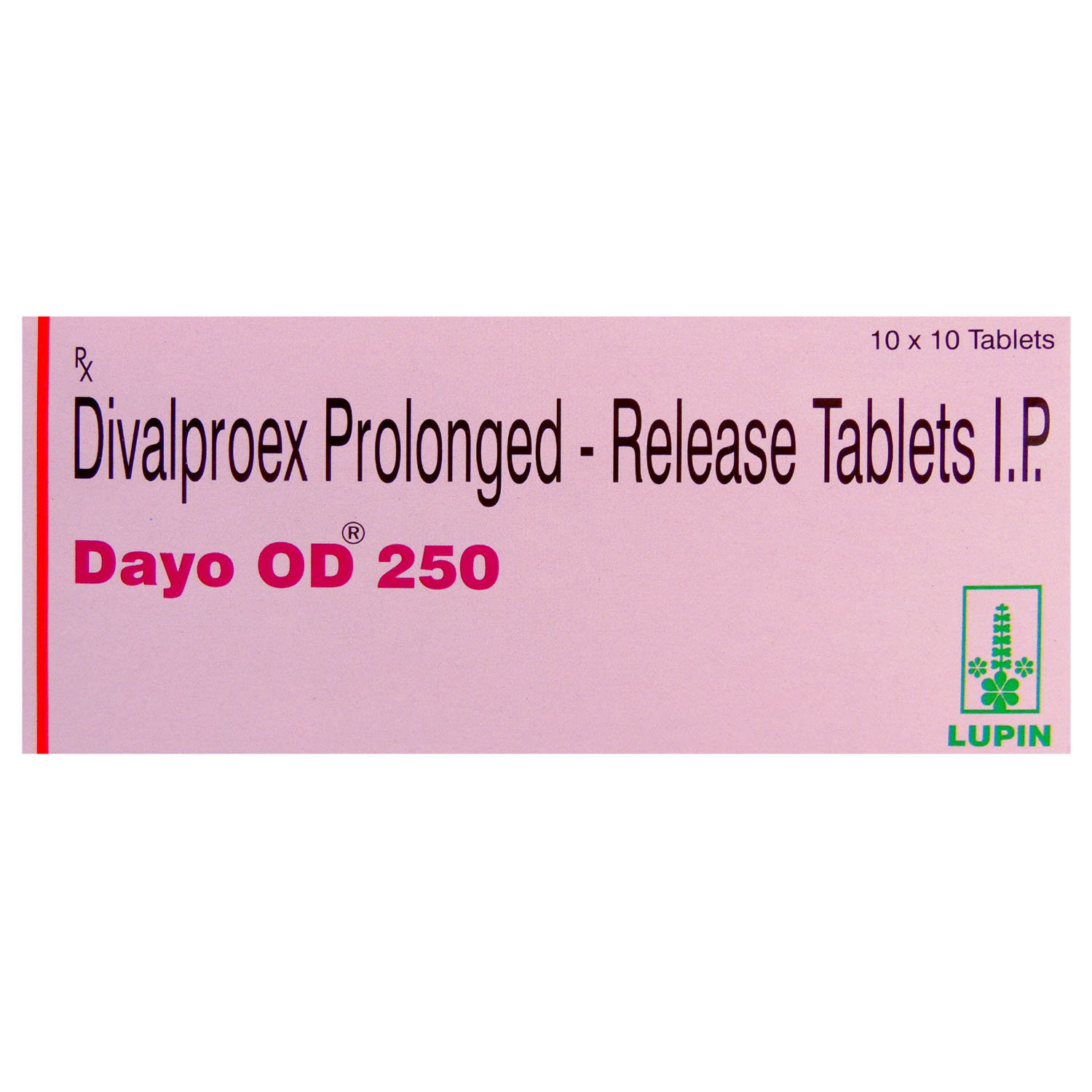

_0.jpg?tr=q-85)

